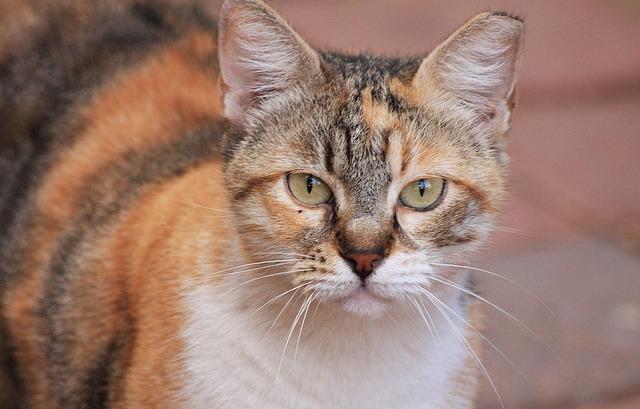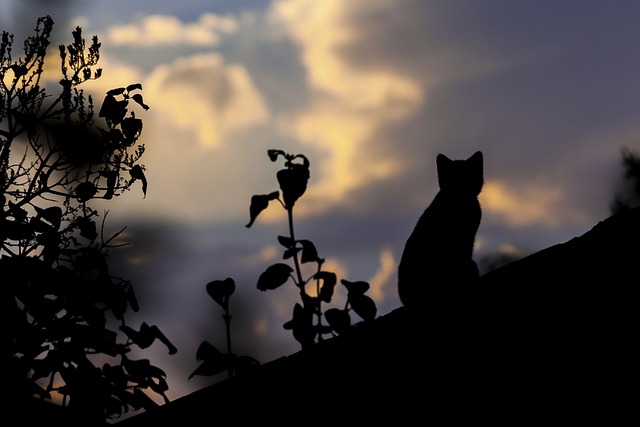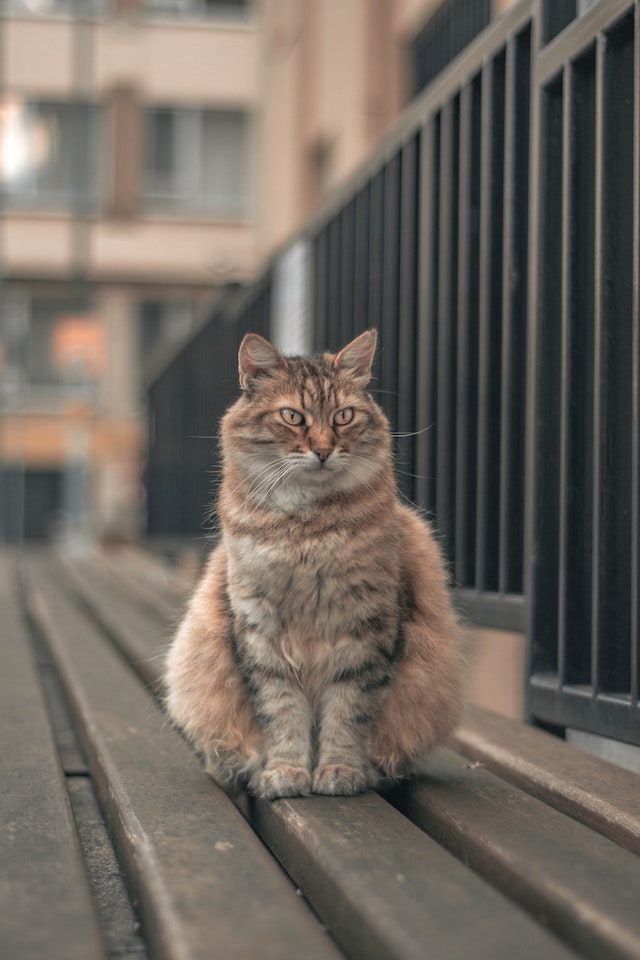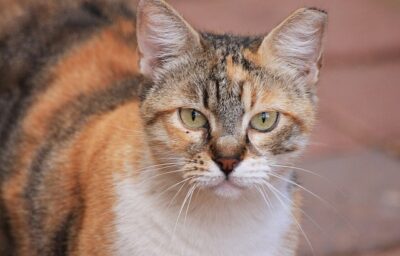As your cat gets older, it’s crucial to keep them healthy and satisfied. Your elderly cat companion becomes more vulnerable as they become older, requiring special care. Your feline might slow down and sleep more frequently, preferring silence and isolation over longer amounts of playfulness and exploration while they were kittens.
Your elderly feline may have entered their double digits and has changed much since you first brought them home. Generally speaking, elder felines are less energetic and more drowsy. As a result, the care regimen must be adjusted to match your pet’s current age.
This post would provide you with some excellent care advice on caring tips for elderly cats. If you’ve ended up adopting an elderly feline or have observed aging in your pet, this would be very helpful for you.
The Top 10 Caring Tips for Elderly Cats
1. Maintain your aging cat indoors
Elderly felines are especially vulnerable to the threats that hide outside. Your feline’s senses weaken with time, making it harder for them to be as attentive and active as they once were. Due to their inability to see the vehicles in time or jump away from the path, they are more inclined to be badly hurt or killed in car crashes.
Additionally, your feline could engage in conflict with smaller animals that are stray in the area and are stronger than your old pet. Your feline may even get stuck and have trouble locating its territory if it has Alzheimer’s or has begun getting old. Generally speaking, it is preferable to maintain your older cat inside wherever it is secure.

2. Increase veterinary trips
Health concerns in older cats are extremely prevalent. It is imperative to make certain that your feline is healthy both inside and outside by taking her to the doctor for routine examinations and blood tests. Your veterinarian may also detect the symptoms of an illness or disorder you might have missed. So this enables the veterinarian to address it quickly, minimizing any possible pain for your feline and lengthening their life because the illness wasn’t permitted to evolve to the advanced stages.
According to the American Association of Feline Practitioners, elderly felines should visit a doctor once in 6 months. Since felines mature more quickly than humans do, it would be approximately 2 years until the next visit.
Observing senior felines in between examinations is necessary since they are skilled at suppressing signs of infection or distress. Cats get sick more frequently as they get older. As a result, it is correct to think that adult felines, elderly felines, and senile felines would start to acquire one or even more diseases that would considerably impact their life expectancy.
Senior cats’ routine check-ups for well-being usually involve:
- A detailed examination of behaviors and actions
- Muscle mass and physical condition
- Epidermis and fur condition
- Gums, dentition, and tongue
- Eyes and ears
- Thyroid duct
- Cardiovascular and respiratory system
- Nasal and Internal organs
- Stomach
- Muscles, ligaments, and tendons
- Any changes in health since the previous trip
Health check-ups for older felines might also include immunizations, flea control, and prescription for any particular problems that your elderly feline might be experiencing.
The veterinarian will perform physical exams and blood tests to determine whether they have any medical problems. Felines frequently experience weightlessness, joint difficulties, renal failure, and periodontal issues as they age. Your veterinarian may assist in prescribing remedies to relieve any bad side effects.
3. Keep a good cleaning practice
Your elderly feline could find it difficult to groom herself as they did before. They may require your assistance to maintain their fur in excellent shape. For older felines, it’s a good idea to give them gentle baths, give them soft combs, and clip the hair in places where they can’t touch to groom themselves.
Your pet’s nails should be cut by the veterinarian once in 6 months to guarantee that there are no abnormal nails that might lead to discomfort. Your doctor could also perform a dental examination to see if your pet’s dentitions are healthy.

4. Keep your old feline engaged, satisfied, and moving
It might be upsetting to observe your feline, who was formerly energetic, become lazy and drowsy. But in order to maintain their health, it’s crucial to keep them engaged and stimulated. The senior cat should not engage in intense exercise due to the possibility of exhaustion or injury.
You may use light activities in order to get feline bones working and improve blood circulation all over your body. Your elderly feline would stay alert and moving with the help of engaging cat accessories, monitored garden exercises, and a lot of kisses and belly rubs.
5. Modify their diet
Young mature felines have different nutritional needs than newborns do. Kittens need more nutrients in their food to maintain their great amounts of energy. Mature cats need a proper protein intake with portioned meals on a daily basis. Because older felines are more likely to develop renal issues, they must be given a diet having low salt and protein level.
There are diets in the marketplace designed specifically for babies, grownups, and geriatric cats. That kind of makes it simple to select a high-quality diet for your elderly feline that you know has healthy components.
You may compare the benefits and drawbacks of every product with the assistance of a veterinary dietitian to choose the best food for your elderly feline. Your veterinarian could suggest this as a valid alternative for your senior feline because there are specialized diets that are designed for animals with osteoarthritis or renal issues.
Modify the food gradually rather than abruptly since doing so may make your pet sick. By combining new meals with the old food, gradually add new items to your pet’s routine. This minimizes any digestive pain that can irritate your senior creature’s delicate tummy.
6. Boost your feline’s water intake
Elderly cats need continuous access to clean, running water. Cats like drinking from running water over still water in a dish. It may be challenging to get older felines to consume sufficient water, thus a feline drinking water fountain could be a helpful accessory. Ensure your feline can locate the water by leaving it throughout the home.
7. Organize everything before the veterinary trip
Before bringing your elderly feline to the vet, there are a few measures that must be taken to make sure the appointment is successful. This generally refers to monthly checkups as the veterinarian can ensure your kitties are healthy.
- In order to avoid forgetting any concerns whenever you visit the veterinarian, make a checklist of every query you are going to ask.
- Give your veterinarian a detailed record of every treat, meal, food leftovers, prescription, and vitamin your feline is presently taking.
- If you observe any concerns with your pet’s conduct or movement, then simply record them doing so at the house and bring the footage with you when you visit the clinic.
- When you are worried about your feline’s litter stray usage, carry a urinary and fecal matter specimen to your veterinarian and request examinations.
8. Observe their weight and behavioral changes
During a feline’s overall lifespan, proper diet is crucial. But, it is a significant factor in geriatric feline care in particular. Giving an elderly, geriatric, or adult feline an age-appropriate diet could:
- Maintain a healthy weight
- Extend their life
- Minimize or stop the discomfort
- Keep their skin, fur, and bodily systems strong
Elderly feline food is made particularly to meet the dietary needs of aging cats. It is available in both dry and moist (often canned) forms. It’s usually a smart idea to provide processed food and have many water bowls throughout the home for felines that are becoming older because they need to drink more water on a regular basis.
Older felines would digest food more easily if fed little, regular meals three to four times each day compared to less, heavier meals. It’s essential to pay attention to any rapid fluctuations in your older feline’s weight and feeding habits. Rapid weight reduction over a short period of time may be a sign of a medical issue.
Older felines might experience periodontal issues that make it difficult for them to chew effectively, which could also cause fat loss. To get your elderly feline to the doctor right away, note these abnormalities in your feline. Periodontal issues may frequently be fixed, allowing your elderly cat to resume eating normally.
9. Note down symptoms of distress and discomfort
Felines are experts at masking any indications of stress or suffering they could be experiencing. If they suddenly change anything about how they act—for example, how much energy they have, what they eat, or how often they use the bathroom.
Your elderly feline can be in significant discomfort if they have poor mobility, such as tight knees and soreness when they move. In the majority of senior felines, arthritis is a prevalent ailment. Your veterinarian would work with you to develop a care plan that would lessen a small amount of suffering that animals with osteoarthritis may feel.
Additionally, you should modify your pet’s accessibility to the litter container and eating space so that they can use them without having to leap or exert themselves.

10. Make the surroundings old feline friendly
Elderly felines are delicate and require additional care in their surroundings. You must ensure they can readily locate their mattress, feeding dish, water tower, and trash container to guarantee they are comfortable. You can access all of these things without climbing or moving far.
- To prevent felines with osteoarthritis from bending, increase the feeding and water bowls for your feline just a little bit.
- Improve the place where the elderly felines sleep in comfort and security. This helps people feel more at ease, particularly if they experience physical discomfort. To prevent the feline from being cold during the cold, you could choose to utilize pet warming pads with heavy quilts on top.
- Clean your elderly feline on a regular basis to prevent excessive nails. It hurts when the claws on felines with arthritis turn into foot pads.
- Maintain a steady regimen in the home to prevent constantly changing the environment from upsetting your older feline.
What are some of the indications that your feline is aging?
The following are a few of the most obvious indications that your feline is aging:
- Vision impairment
- Bad odor
- Temperamental changes
- Hazy vision
- Excessive urine and thirst
- Extended vocalization
- Disorientation
- Restricted movement
- Fat loss
- Loss of coat quality
- Changes in the sleep-wake pattern
- Thyroid dysfunction
- Reduced kidney performance
- Lower perception of smell
- Ingrown/brittle nails
- Cardiovascular or circulatory issues
- Reduced capacity for digestion and nutrition absorption
- Stress tolerance is impaired
Veterinarian care for elderly felines
Numerous felines have long, fulfilling lives and offer their parents a lot of pleasure and company. The frequency of your pet’s examinations must be discussed with your veterinarian, along with keeping them on track with their immunizations and yearly physical exams.
You must always consult your veterinarian if you are experiencing any problems regarding your feline’s well-being since they might be capable of providing therapy to assist your pet to cherish their senior years easier. Most health disorders that impact senior felines are curable.
Gradually, you could discover that your feline is less active or that they aren’t consuming food and liquids as they’s supposed to. Whenever they become critically sick, it might be difficult to think of letting animals go since you love them just as deeply as any other loved ones.
You must choose wisely for both yourself and your precious cat. Among the hardest choices, you will make is whether you should put your feline to sleep. However, it’s usually nicer to offer your feline serenity and respect their nearly-dead days by being there for them.
Read also: How long do most indoor cats live
Final Thought
Looking after your elderly feline might be among the most gratifying moments you may ever encounter. Try to engage your feline physically and mentally by caressing, cuddling, and connecting with her in your unique manner.
Your kittens are as dependent on you as you are on them. Elderly felines usually want more care than younger ones, and investing additional time together guarantees you both make the best of your pet’s old age.
